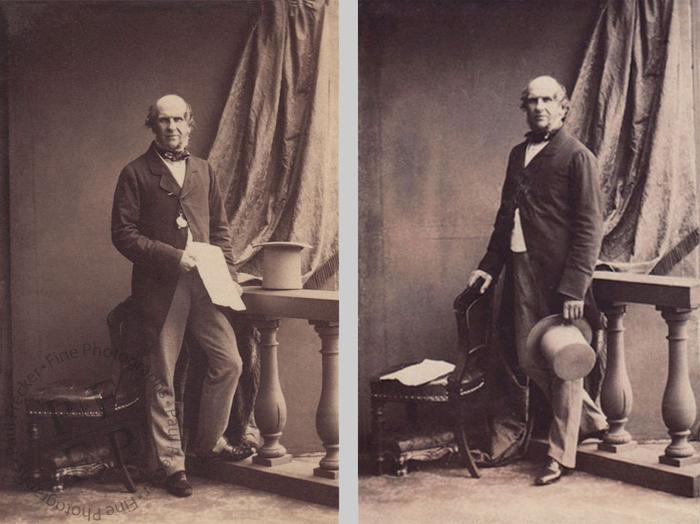Captain John Gladstone
(1807-1863)
Volume 1, page 168, sitting number 876.
John Neilson Gladstone was born on 18 January 1807, the son of Sir John Gladstone, 1st Bt., a Scottish-born businessman; his mother was Anne MacKenzie Robertson from Dingwall. His father settled in Liverpool and made a large fortune initially from trading in corn with the United States and cotton with Brazil, and later through sugar plantations in Jamaica.
John Gladstone gained the rank of Captain in the service of the Royal Navy. He was MP for Walsall from February to June 1841, for Ipswich from 1842 to 1847, and for Devizes from 1852 to 1857. He lived at Bowden Park in Chippenham, Wiltshire.
On 7 February 1839 he married Elizabeth Honoria Bateson, daughter of Sir Robert Bateson, 1st Bt. The couple had five children, including a son, Sir John Gladstone, who inherited the baronetcy from his cousin.
Captain Gladstone died on 7 February 1863 at Bowden Park, Lacock, Wiltshire. His estate was valued at £140,000 (resworn the following year at £120,000).
'We regret to learn that Captain John Neilson Gladstone, M.P. for Devizes, died on Saturday morning, at six o'clock, at Bowden Park, near Chippenham. The death of the hon. and gallant member was occasioned by a carbuncle between the shoulders, and he had for some days past been in almost a hopeless condition. His brothers, Sir Thomas Gladstone, and the Right Hon. W. E. Gladstone (the Chancellor of the Exchequer), and other relatives were with him at his death. The lamented gentleman was the third son of the Sir John Gladstone, Bart., and was born in 1807. After receiving his education at the Royal Naval College, Portsmouth, he entered the navy in 1820, became a commander in 1842, and a captain in March, 1860, but for some years past had not sought active service, so that he might be regarded to have left the navy.
'Captain Gladstone was a Conservative in politics, and was first elected to the House of Commons for the borough of Walsall in February, 1841. [...] He was a strenuous supporter of the agricultual interest, and a constant supporter of the Conservative party, with whom on all party questions he voted.' (London Evening Standard, 9 February 1863).

